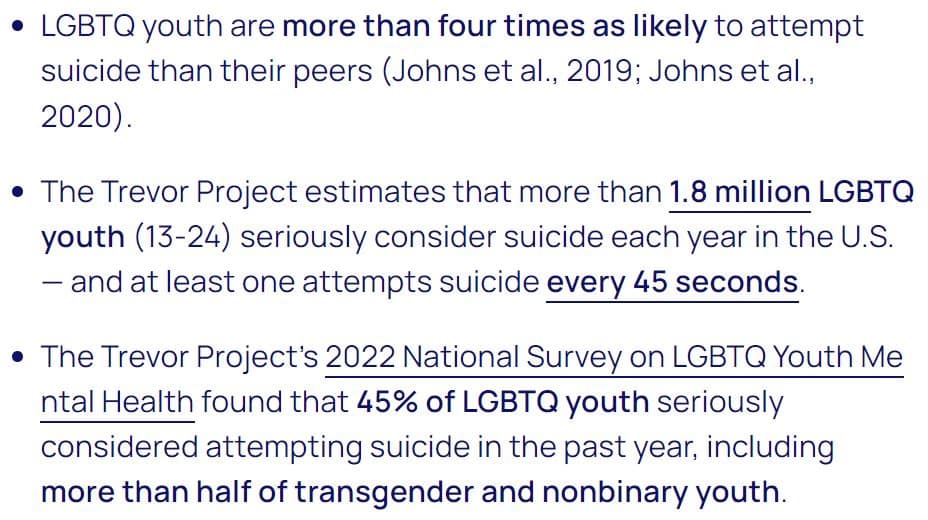I work at a social science research institute. We’re currently adapting an evidence based parenting program to better support and meet the needs of several different types of families. The program was originally developed for foster parents generally, but now we’re adapting it to be better tailored to transcultural foster families, kinship caregivers, and caregivers who are fostering LGBTQIA+ identifying youth.
As part of my work, I’ve recently been reading a lot about youth who are in foster care and who identify as LGBTQIA+. My heart has been breaking as I’ve been learning about how many of these kids are in foster care because their families of origin rejected them because of their sexual orientation or gender identity/expression. A lot of these kids also face rejection from their foster families for the same reasons and can end up bouncing from home to home as they get rejected because of their identity. Can you imagine how hard that would be to not feel accepted by your own family?
I guess I hadn’t realized how many parents have very conditional love for their own children.
And I guess I hadn’t realized how many children grow up knowing that their parents have this very conditional love for them.
Often children end up hiding their identity, hoping to not be rejected by those who are supposed to love them most. Even for kids who identify as cisgender/heterosexual, growing up in a household where they know their parents would reject them if they identified differently seems like a hard/heavy burden to bear.
And then we (as members of society) wonder why suicide rates are so high – especially among LGBTQIA+ youth.
If you are unaware of this, here are some quick statistics from https://www.thetrevorproject.org/resources/article/facts-about-lgbtq-youth-suicide/ :

Kids need love. They need their parents to accept them.
One morning as I was working from home early in the morning and knee deep in my research, my children came in to my room. I felt the need to give them a big speech and immediately began gushing to them. I wanted to make sure they knew that we would accept them fully and love them no matter what and they never have to feel like they need to hide their sexual orientation/gender identity/gender expression from me. As I finished my big impassioned speech, my 12 year old rolled her eyes and was like, “Yeah mom, we already know that.”
I was relieved that was her response. Of course I want a relationship with my children where my kids know that I am fully accepting of them. BUT my heart is still breaking for all the kids who don’t get to roll their eyes and be like, “of course my parents would accept me fully.”
I’m just one person, writing one blogpost. I realize I’m not going to change the world with this post. But I do hope, if you’re reading this, you stop and think, “Can my kid roll their eyes and know that I will accept them fully, no matter how they identify?” If you aren’t sure the answer to that question, or you think the answer might be “no,” it’s time to rethink your priorities. Your children need your love. They need your acceptance. Please let them know that they have that.







5 Responses
Some parents try to do this by telling their kids “I’ll love you no matter what. I’ll love you no matter who you are.” And sometimes the kids then think to themselves “But not if you knew I was gay/trans/queer/etc.” Parents need to be more blunt and more specific when delivering these messages. “Dear child, if you are trans, we will still love you. We will not kick you out of our home.” “Dear child, if you quit going to church entirely, we will still love you. You will still be part of our family.” Never underestimate the ability of a teenager to assume they won’t be accepted.
Excellent points! Thank you!
Last night I was at a Pride rollerskating event in Southern Utah where I over heard many teens talking about coming out to their parents and not being accepted when they do come out or not feeling safe to come out. It made the celebration of pride at that event all the more important. I worry that we set everyone up for failure in Mormon communities when we are conditioned to think that we can and should try to control our spouses, our families, and our children and the choices that they make in life.
So heartbreaking. And such a huge problem. Thank you for sharing
I will be forever grateful that I laid the foundation, and did the work on myself, so that my children felt they could come out to me and that I could respond with sincere love and support for them. They’re still struggling to figure things out, but they know I’ve got their backs.